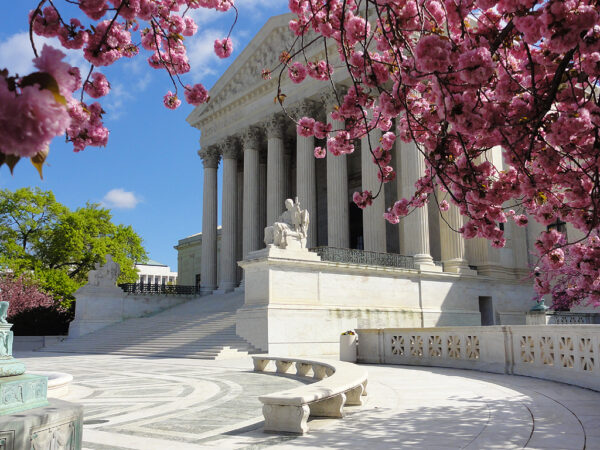The Supreme Court reportedly agreed Monday to take up a case testing whether a decades-old federal law that bars drug users from owning firearms violates the Second Amendment, setting the stage for another major decision on the scope of Americans’ gun rights.
At the urging of the Trump administration, the justices will review the constitutionality of the federal statute that makes it a crime for anyone “who is an unlawful user of or addicted to any controlled substance” to possess a firearm. The offense carries a sentence of up to 10 years in prison. A ruling is expected by next summer.
“This is the archetypal case for this Court’s review,” Solicitor General D. John Sauer wrote in filings urging the justices to intervene. The decision will mark the Court’s latest engagement with the Second Amendment, an issue that has divided the judiciary and the nation for decades.
The statute is one of the most commonly prosecuted federal gun crimes. U.S. Circuit Judge Stephen Higginson, an appointee of former President Barack Obama, recently observed that courts handle such cases “daily across the country.” The most prominent example came last year, when a jury convicted Hunter Biden for possessing a Colt Cobra revolver in 2018 while addicted to crack cocaine. Biden had argued that the law infringed on his constitutional rights, but his father, President Joe Biden, later pardoned him.
The justices’ announcement arrives as the Supreme Court continues its work despite the ongoing government shutdown, which forced the closure of the building to the public. The high court’s deliberations will nevertheless move forward, with this case expected to shape how far the federal government can go in restricting gun ownership based on personal behavior.
The outcome could have far-reaching implications. More than 30 states have enacted similar restrictions on firearm ownership for drug users, according to the Justice Department.
Federal courts, meanwhile, have been divided on whether the statute can stand in light of the Court’s 2022 decision expanding gun rights and establishing a new historical test for evaluating firearms laws.
That landmark decision required that any modern gun control measure must align with the nation’s historical tradition of firearm regulation.
Since then, some lower courts have concluded that the ban on gun possession by drug users does not meet that standard, striking it down in certain cases.
The Supreme Court’s willingness to revisit the question suggests a majority of justices may want to clarify the limits of the Second Amendment test it introduced two years ago.
Last term, the Court upheld a related federal statute that bars individuals under domestic violence restraining orders from possessing firearms, signaling that some restrictions on gun ownership may still survive constitutional scrutiny.
The new case joins another pending this term involving Hawaii’s ban on concealed carry on private property without the owner’s explicit consent, further underscoring how central the right to bear arms remains in the post-2022 legal landscape.
As the Court takes up yet another test of gun rights, it will again confront the question at the heart of the national debate: how to balance individual liberty with public safety in a constitutional republic built on the promise that the right to keep and bear arms “shall not be infringed.”
[READ MORE: Thomas Massie Challenger Chosen By Trump]








